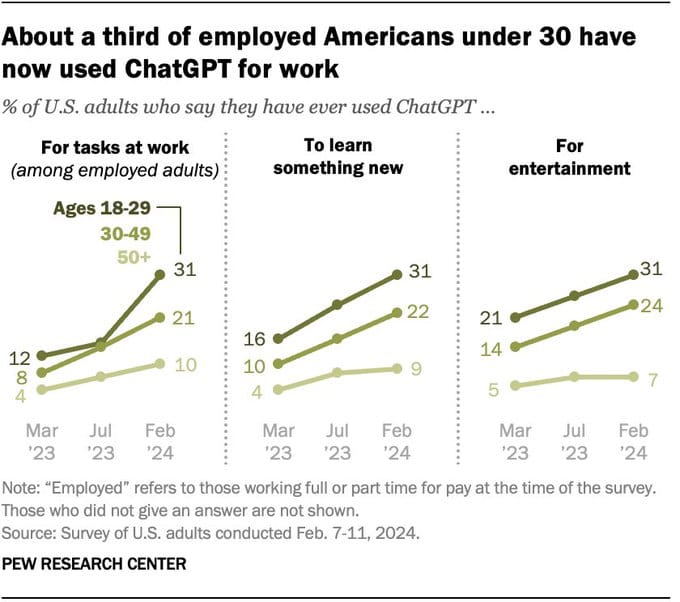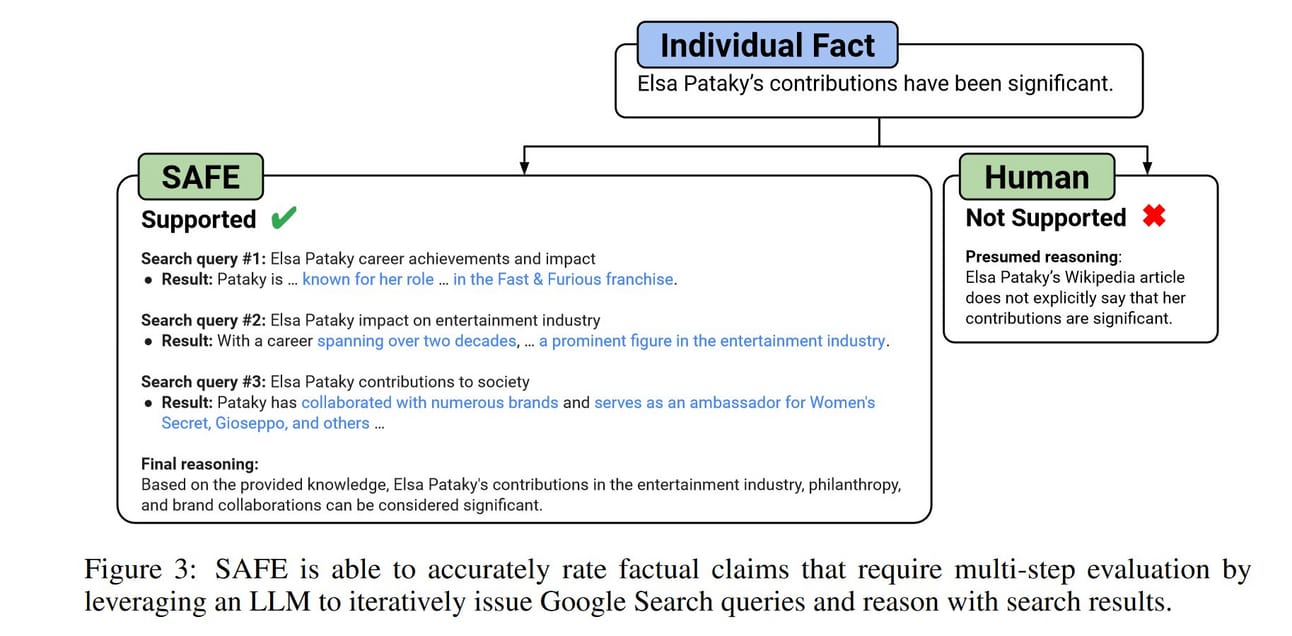- AI Weekly Wrap-Up
- Posts
- New Post 4-3-24
New Post 4-3-24
Top Story
Microsoft and OpenAI plan “Stargate” $100 billion supercomputer
OpenAI’s CEO Sam Altman likes to think big. Microsoft’s CEO Satya Nadella likes to think big, too - and has the cash to back it up. Recently the two big thinkers have been planning a $100 billion supercomputer datacenter to supply the computing horsepower for the upcoming Age of AI. The project, codenamed “Stargate” by OpenAI, is the 5th and final phase of a plan hatched by OpenAI to amass enough ”compute” (as the cool kids call it) to power Artificial General Intelligence - computers as smart as the average human in every realm - which is the Holy Grail of the OpenAI crowd.

Sam and Satya conjure the future. Photos via Getty. Art: Shane Burke
Clash of the Titans
Amazon invests $2.75 billion in OpenAI rival Anthropic
Anthropic is OpenAI’s mini-me. Anthropic was founded by disaffected OpenAI employees, and has dogged OpenAI’s steps at every turn. Anthropic’s chatbot, Claude, is a highly capable competitor to ChatGPT. Since OpenAI is tied at the hip to its sugardaddy Microsoft, Amazon has invested heavily in Anthropic. It previously invested $1.25 billion in the company, and now has rounded that up to a cool $4 billion in total. Anthropic knows that you can never have too many rich friends, but sometimes having even one can make all the difference.

Apple releases ReALM, for conversations with users
Apple keeps hinting that there will be big AI news at its developer conference on June 10.
Now they may have just dropped another shoe, with a paper on how to get chatbots to understand natural human conversation that refers to things mentioned previously, or that are visible on the device screen. These abilities could be very useful for an AI-powered agent that you can ask to do tasks in a natural, conversational way. Users are salivating at the thought of “Siri on steroids,” aka the Siri that we actually wanted in 2011.

Figure 3:Performance improvements with each experiment – (a) Baseline Finetuned LLM, (b) Obtaining screen elements through OCR, (c) Obtaining screen elements through UI elements and Clustering (d) Adding an extra newline between the instruction and user request, (e) Onscreen Grab, (f) Onscreen Grab with injected turn objects, (g) Onscreen Grab with injected turn object + needing lines to be separated by at least Margin, (h) Separating elements in the same line by a tab
Fun News
Over 200 musical artists raise the alarm about AI in open letter
AI text-to-music apps (like Suno - see our story from February 20) have scared the bejeezus out of the music industry. Now over 200 musical artists, including headliners like Nicki Minaj, Billie Eilish, and Katy Perry, have released an open letter urging AI companies and streaming services to use AI responsibly and avoid infringing on or devaluing the rights of human artists. Click the link to see the entire one-page letter, and its wide-ranging list of signers. Actors’ union SAG-AFTRA shut down Hollywood for months over similar concerns, and won historic concessions protecting human actors. No similar organization yet exist for musical artists, so they are doing what they can - calling the other side out on what they consider bad behavior, while making their case to the public to generate support.

Taco Bell and Pizza Hut go all in on AI
YUM Brands, the fast-food mega-conglomerate that owns Taco Bell, Pizza Hut, KFC, and Habit Burger Grill, has decided to go hard into AI. YUM wants to revamp all aspects of its restaurants’ operations, from order-taking voice AI in the drive-through window to using AI to optimize logistics and forecasting behind the scenes. YUM’s CTO Joe Park has had success within the company with smaller AI projects since 2020, and is now eager to make AI a foundational technology throughout the enterprise.

Pew Research finds use of ChatGPT at work has soared
Pew Research prides itself as a pre-eminent public interest research organization, or “fact tank,” and it has recently released an updated look at public use of and attitudes toward AI. Among other interesting findings, Pew found that use of ChatGPT at work has soared over the past year, from 8% of workers of all ages in 2023 to 20% in February of 2024. Use of ChatGPT by workers under the age of 30 are higher, rising from 12% in 2023 to 31% in February 2024.

Google DeepMind unveils “superhuman” fact checker
Chatbots lie - er, “hallucinate” - a lot. This has been a major barrier to its wider adoption. Now Google’s AI research lab DeepMind has released a paper claiming that it has developed a method to make chatbots serve as fact checkers, with results better than crowdsourced pieceworkers like Amazon’s Mechanical Turk program. Against a standard database of assertions about the real world, the fact-checking AI, known as SAFE, agreed with human fact-checkers 72% of the time, and in a sample of 100 disputed judgments, SAFE was ultimately deemed correct in 76 of them. This gave SAFE an overall accuracy score of 91%, versus an accuracy score of around 80% for the (somewhat motley crew of) humans. Trials against trained and experienced human fact checkers would be a better test, but the work to date is impressive nonetheless.

AI in Medicine
Emory wins grant to test AI in sepsis
Emory University in Atlanta has received a grant for $750,000 from the Kaiser Permanente Augmented Intelligence in Medicine and Healthcare Initiative (AIM-HI) program to test an AI algorithm that can prospectively identify patients with sepsis who might benefit more from crystalloid IV fluid resuscitation rather than normal saline. The test will run over a span of 2 years.

DrugGPT: AI helps doctors prescribe drugs in UK
Oxford University researchers have developed a medications chatbot that can help physicians more appropriately prescribe medicines while also giving patient education materials to help the patients understand how to appropriately take them. The aim of the project is to avoid physician medication errors and patient maladherence.

Chatbot outperforms physicians in clinical reasoning
Physician-scientists at Beth Israel Deaconess Medical Center ran a trial of ChatGPT-4’s clinical reasoning ability on a standard set of complex clinical problems. They found that the chatbot’s performance, although not perfect, exceeded the scores of both attending physicians and medical residents on clinical reasoning, although, interestingly enough, not on diagnostic accuracy. The trial was published in an April 1 research letter to JAMA Internal Medicine.

NEJM points to issues in using wearable digital technologies
Millions of Americans wear smartwatches, fitness trackers, or other digital wearables, offering a potential wealth of physiologic data on patients for healthcare professionals. To make sure that we realize that potential in an ethical way, NEJM examines the promise and potential pitfalls with use of digital wearable data.

That's a wrap! More news next week.